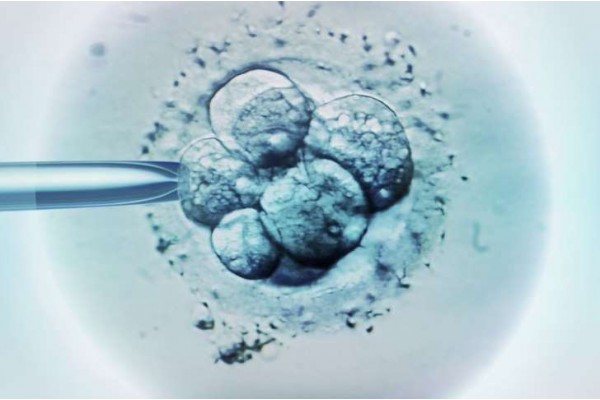Major fertility breakthrough as human eggs grown in lab for first time
February 11, 2018
Source: msn
 848
848

Human eggs have been fully grown in a laboratory for the first time in what has been hailed as a majorfertility breakthrough.
Scientists removed egg cells from ovary tissue from girls at their earliest stage of development and grew them to the point at which they are ready for fertilisation.
The removal of ovarian tissue is currently carried out for child cancer sufferers about to undergo treatment such as chemotherapy which could make them infertile.
At the moment the eggs need to stored and reimplanted in later life but this risks reintroducing the cancer.
Scientists say this could lead to the fertility of young cancer patients being saved in future.
They are now applying for permission to fertilise the eggs in the lab.
Lead researcher Professor Evelyn Telfer, of the University of Edinburgh’s school of biological sciences, said: “Being able to fully develop human eggs in the lab could widen the scope of available fertility treatments.
“We are now working on optimising the conditions that support egg development in this way and studying how healthy they are.
“We also hope to find out, subject to regulatory approval, whether they can be fertilised.”
Scientists developed substances in which eggs could be grown, known as culture mediums, to support each stage of cell development.
Their findings, using tissue donated by women who were undergoing routine surgery, built on 30 years of research.
In previous studies scientists had developed mouse eggs to produce live offspring.
Selfless surrogate gives birth to twins for stranger who couldn't conceive herself
Dr Channa Jayasena, of Imperial College London, said: “Only mature eggs can be fertilised into a baby.
“This is an elegant piece of work, demonstrating for the first time that human eggs can be grown to maturity in a laboratory. It would take several years to translate this into a therapy.
“However, this is an important breakthrough, which could offer hope to women with infertility in the future.”
The latest study, published in Molecular Human Reproduction, is the first time a human egg has been developed in the lab from its earliest stage to full maturity.
It involved researchers at Edinburgh University, the Royal Infirmary Edinburgh, The Centre for Human Reproduction in New York and the Royal Hospital for Sick Children in Edinburgh.
Prof Daniel Brison, of the University of Manchester, said: “This is an exciting breakthrough which shows for the first time that complete development of human eggs in the laboratory is possible, more than 20 years after this was achieved in mice.
“As the authors acknowledge, there is much more important research still to do, but this could pave the way for fertility preservation in women and girls with a wider variety of cancers than is possible using existing methods.”
Read more on
- Things to Know before Buying Newborn Baby Incubators March 31, 2022
- Highly Resistant Food Poisoning Bug Responds to Antibiotics September 6, 2018
- Smartphone Based Diagnosis to Identify Mosquitoes Transmitting Infection September 5, 2018
- 3 Natural Plant Extracts Manufacturers on Drugdu.com September 4, 2018
- Shenzhen Chuanggan – Health Assessment Facility Supplier September 4, 2018
your submission has already been received.
OK
Subscribe
Please enter a valid Email address!
Submit
The most relevant industry news & insight will be sent to you every two weeks.



